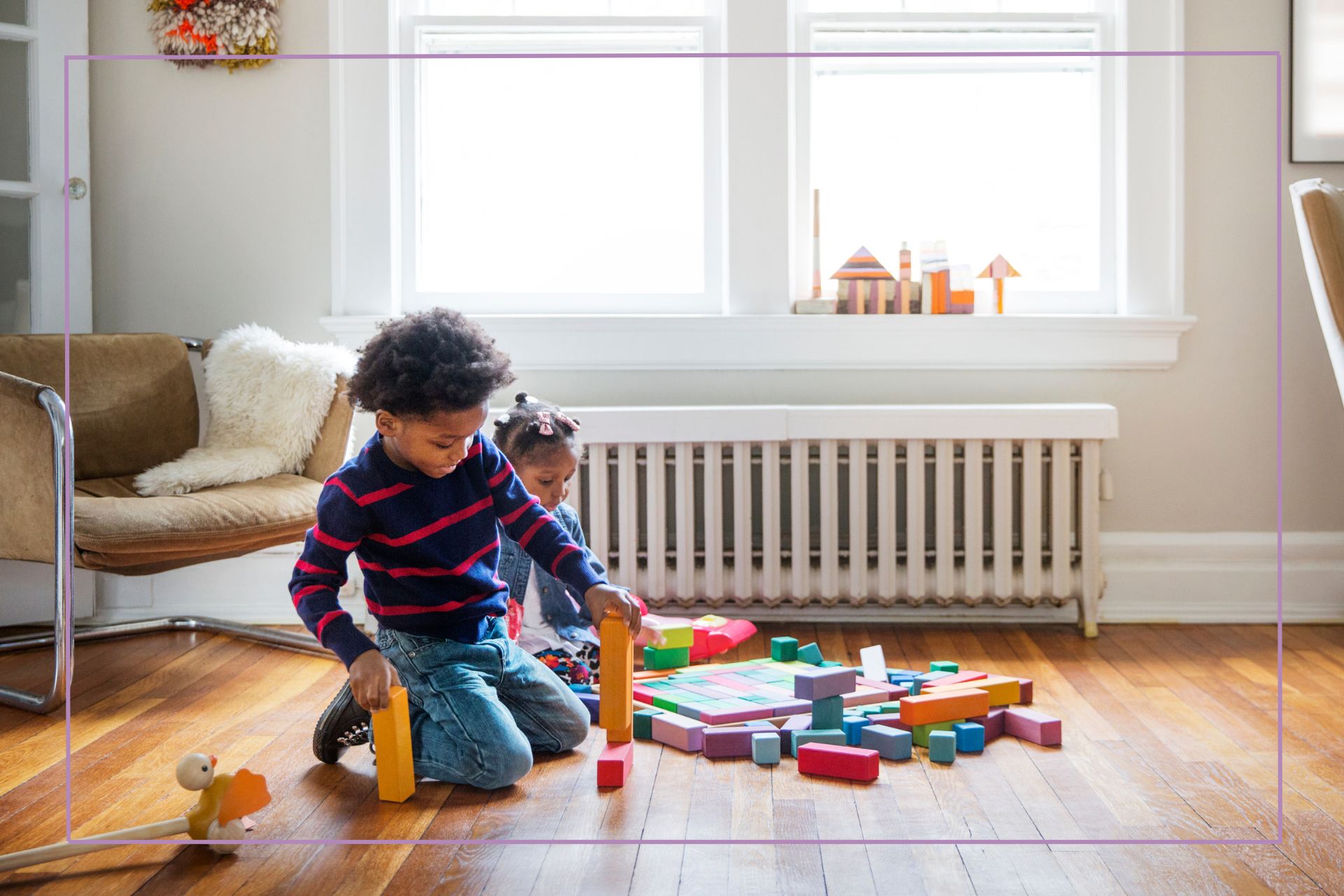
I’ve spent years researching and advocating that play is crucial to a happy and healthy childhood. But play is not just fun and games play is your child’s full-time job - a vital part of their development.
From the moment they wake up in the morning to bedtime stories at night, our children are constantly kept busy, whether with their imagination or through the different types of play - this is from newborn age (if you're a new mum check out this 'how to play with a newborn' article) up until teenage years. Play could be getting hands-on with building blocks, pretending to be a superhero, or playing make-believe under a dust sheet. (If, however, you're reading this and thinking, 'my kid never plays with their toys, there could be a reason for that, too.)
Playing isn't always about entertainment - it’s a fundamental part of their childhood, it can set the foundation for emotional development and physical, social and cognitive growth. Our little ones will develop the essential core skills such as problem-solving, communication and resilience by being able to play - all of which are crucial for success and building self-esteem later in life.
In this article, I talk more about what a balanced play diet looks and sounds like, and why playing is your kids' main job
What is a balanced play diet?
I often discuss the idea of a “Balanced Play Diet,” which emphasizes the importance of incorporating different types of play into your child’s daily routine. Just like a balanced diet, which includes a variety of different food groups, a balanced play diet should include a mix of active, imaginative, social, and sensory play experiences.
Active play, including running, jumping, and climbing, can help children develop gross motor skills, strength, and coordination. One way to make sure this play is a success is to choose something that is developmentally appropriate so they're not set up to fail. For example, a 7- or 8-year-old child is not ready for a 3-mile run, but soccer, bicycle riding, and swimming are all well great activities for kids this age. Also modelling is always great, children who regularly see their parents enjoying sports and physical activity are more likely to do so themselves.
Imaginative play encourages children to explore their creativity as they navigate imaginary worlds. A great way to help imaginative play for kids aged 6+ would be pretending your dining table is a table at a restaurant; you're the waiter, and they're the customer. Real-life scenarios are a great way to help children develop the confidence they need to navigate real-world situations on their own. Encourage your kids to explore new scenarios with you.
Social play could involve playing with siblings and classmates or going on a play date with friends, which teaches children the value of social play—things like cooperation, sharing, and empathy. Research from 2018 shows that family-based involvement can successfully improve prosocial behaviour in kids. This includes modelling appropriate social and emotional behaviour and engaging children in activities that teach these skills. A brilliant and easy way for adults to support social play is 'thinking out loud'. Your child can benefit from hearing your thinking process. When you share aloud, it helps your child understand how you deal with emotions or solve problems. For example: “Oops, I poured too much water into my cup, and now it's spilt. I better get a tea towel to wipe this up."
Sensory play, for example, getting hands-on in a sandpit, can stimulate brain development and foster sensory exploration. Sensory play isn't always about messy play - it can be different textures and smells, too, and with items from around the house. To create a sensory bin, take a plastic storage box and fill it with age-appropriate items such as sand, uncooked rice or beans, cotton balls or feathers. Add in other items like toys, shovels, matchbox cards, Legos, small bowls, etc. The main thing is to let them explore in their own time, and own way. Just because it's set up doesn't mean they have to jump straight in.
I know that this can all seem daunting and too time-consuming, and I recognise the challenges that parents today face. We’re all so busy juggling work and family life or rushing from A to B that it’s often easy to overlook the importance of play and scheduling in daily life. Play is essential, but not every minute of your child’s free time needs to be structured with a timed activity. I firmly believe it’s not about grabbing the latest educational toy or filling each free moment with a specific learning experience - it’s more about ensuring a child has the opportunity, freedom and space to explore their environment and discover the world on their terms.
"This isn't about buying the latest toy... children can learn when they are bored; when kids are forced to use their creativity freely."
You might hate playing with your kids - you're not alone in feeling this, and you're certainly not a bad parent - I have written extensively about how children can learn when they are bored; when kids are forced to use their creativity freely, they learn problem-solving skills and independence - toys like construction toys or craft kits, fostering open-ended play ideas, are a great way to encourage play without a start or end point.
The next time you see your child having fun, remember they are learning and thriving! If you can embrace the power of play and incorporate it into daily life it’s a great bonding opportunity and one that will also create memories. And, when you can actively participate in your child’s most important job, you will strengthen your relationship, demonstrate your love, and allow them to excel at their number one priority.
In other related features, if you’ve noticed a decline in your kids’ playtime, try these expert-approved game ideas or perhaps toy rotation - this can highlight toys they forgot they had. If you hate playing with your kid, you’re not a bad parent, as our Family Editor discovered.







